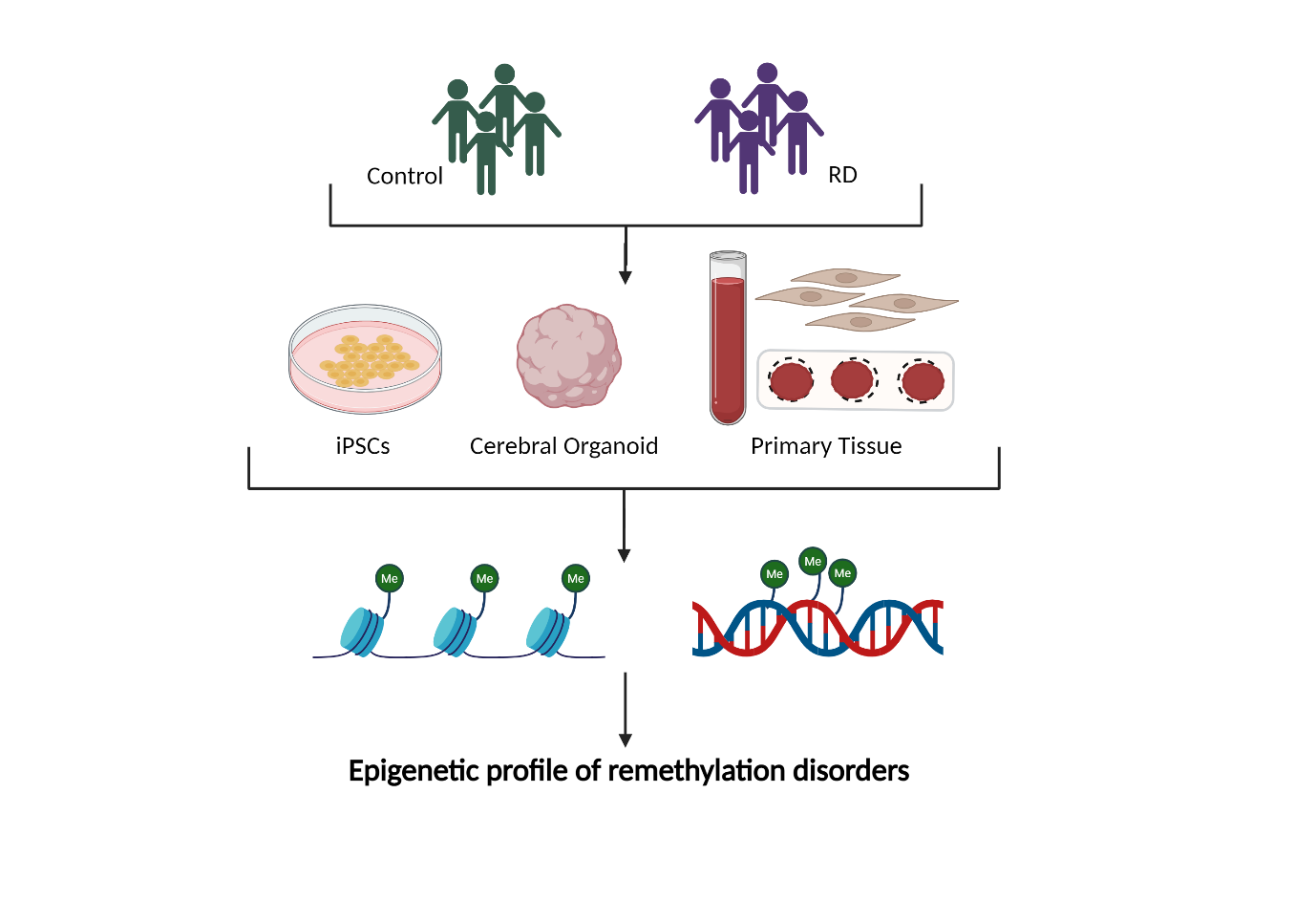Epigenetic changes in remethylation disorders
Remethylation disorders are a group of rare genetically inherited metabolic diseases that result in the accumulation of homocysteine and disturbances in the synthesis of S-adenosylmethionine (SAM). Although affected individuals show a broad range of clinical symptoms, disease presentation is typically dominated by neurological symptoms, including developmental delay and cognitive impairment. The factors underlying disease variability and neurological dysfunction in remethylation disorders are currently not well understood. One potential mechanism could be through disturbed SAM synthesis, as SAM is required for most methylation reactions in the cell, including of DNA and histones. Key open questions relate to the pathogenesis of remethylation disorders and the role played by DNA methylation: whether it can be detected pre-symptomatically and can thus be used as an early diagnostic marker, if it directly contributes to neurological dysfunction, and if so whether it represents a novel treatment target. To address these, we are developing induced pluripotent stem cells (iPSCs) with loss of function variants in key remethylation disorder-associated genes. These are then differentiated to cerebral organoids to mimic the neurological phenotype and explore the links with DNA and histone methylation. In parallel, we are collecting blood and fibroblasts directly from patients to assess the suitability of epigenetic profile as a diagnostic biomarker.
